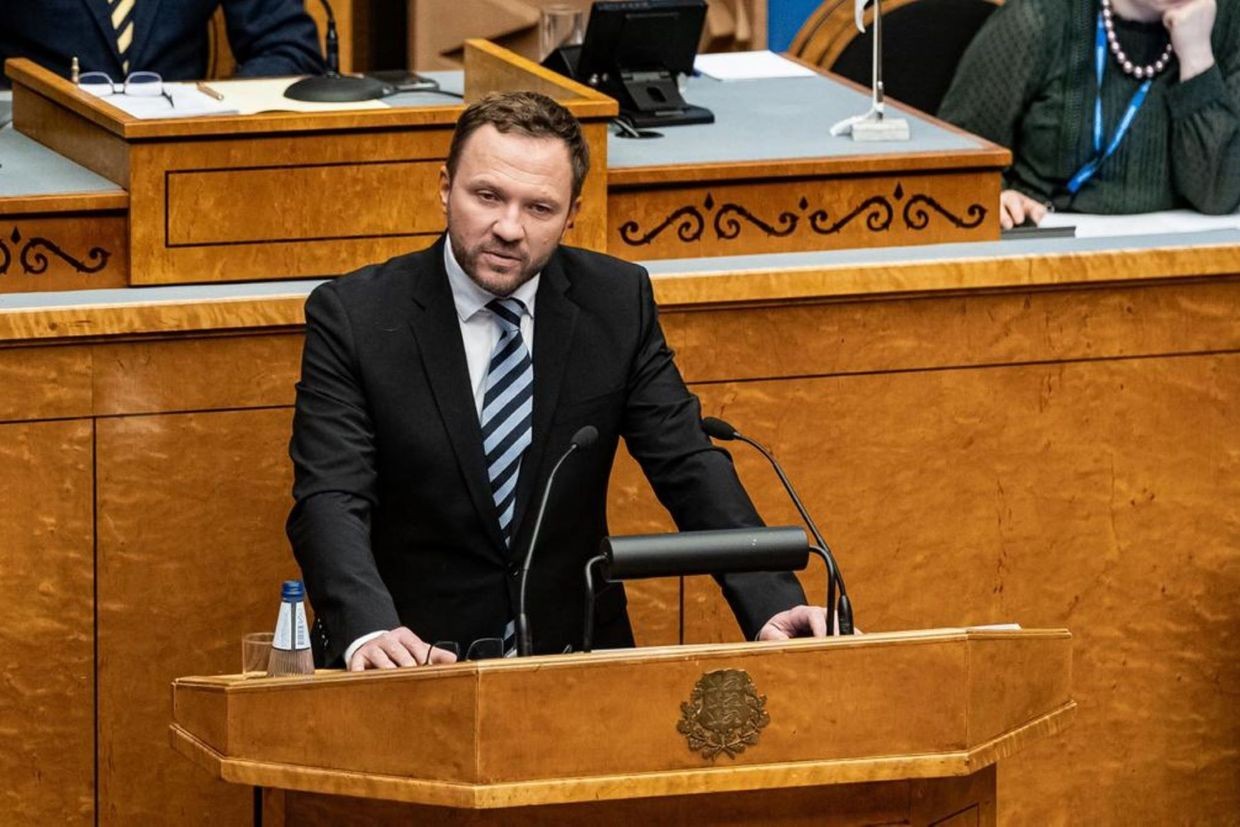
Estonian Foreign Minister Margus Tsakhna has stated that it was ‘clear that Georgia will not join the European Union on its present course’, as an EU representative warns of the deteriorating human rights situation in the country.
Tsakhna’s remarks came as part of his annual foreign policy speech on Tuesday.
‘We have said that holding new elections is a way to emerge from this crisis and restore trust. If the authorities continue to use violence, we are ready to continue tightening sanctions, including revoking visa-free travel’, he said, in reference to the Georgian police’s crackdown on protests which have erupted following the government’s decision to halt Georgia’s EU accession bid in late November.

At the time, Prime Minister Irakli Kobakhidze said that opening accession talks with the EU would not be ‘on the agenda’ during this convocation of parliament, adding that the government would also refuse any budgetary support from the EU.
He claimed that Georgia would be ‘economically prepared’ to begin negotiations with the EU only by the end of 2028, aiming for membership by 2030. After the EU declined to open negotiations with the country in 2023, party officials at the time insisted that Georgia deserved to begin accession talks with the bloc.
Since then, EU leaders and officials have repeatedly criticised Georgia for straying from its pro-Western course, which Georgian Dream denies.
Georgia’s Western partners have also criticised Georgian Dream and its satellites for adopting controversial and repressive legislation, most recently with its amendments of the country’s administrative and criminal offence codes that toughened penalties and punishments against those detained in demonstrations and protests.

The EU Commissioner for Enlargement, Marta Kos, warned on Thursday that these amendments would ‘further undermine citizens’ rights to freedom of expression and assembly’.
Latest developments in #Georgia are alarming.
— Marta Kos (@MartaKosEU) February 6, 2025
The legal amendments proposed by the Georgian Dream will further undermine citizens’ rights to freedom of expression and assembly.
We call on Georgian authorities to reverse course and return to Georgia’s #EU path, respecting the…
As relations soured between the West and Georgia, all Baltic states, Germany, Czechia, and the UK have imposed sanctions on Georgian government figures and high-ranking police officials.
The US also sanctioned Bidzina Ivanishvili, the billionaire founder of Georgian Dream, in late December 2024 for ‘undermining the democratic and Euro-Atlantic future of Georgia for the benefit of the Russian Federation’.

On Monday, Nika Gvaramia, a leader of the Coalition for Change opposition group, said that he was traveling to Strasbourg along with fellow opposition politician Zurab Japaridze to participate in a session of the European Parliament.
‘[We] will have our proposals, including our list of people who should be sanctioned, who are violent, both judges, prosecutors, as well as false witnesses who lie during trials and send people to prison’, Gvaramia told journalists.
Speaking to RFE/RL, the EU Special Representative for Human Rights, Olof Skoog, said that there were many reasons for concern regarding the human rights situation in Georgia, adding that it is necessary to release those detained during pro-Western protests.
He said that people cannot be imprisoned for their freedom of expression and called for their release.
Human rights activists in Georgia have suggested that more than 400 demonstrators could have been detained during pro-EU demonstrations against the government in November and December — a large number of whom claim that they were subjected to physical or psychological abuse by law enforcement officers.
Protests against the government and in demand of new elections have been taking place in Tbilisi and other Georgian cities for almost 80 days.
Since the protests began, law enforcement officers and unidentified masked people have assaulted a number of protesters, including tens of journalists covering the protests.






![Baia Margishvili standing in central Tbilisi with a sign reading: ‘The Prosecutor’s Office [is] a punitive squad. How many more innocent people will you put in prison?’ Photo: Mariam Nikuradze/OC Media.](/_next/image/?url=https%3A%2F%2Fassets.bucket.fourthestate.app%2Foc-media-prod%2Fcontent%2Fimages%2F2026%2F02%2Fcalls-for-sanctions-and-raids-19-10-25-48.jpg&w=3840&q=50)




